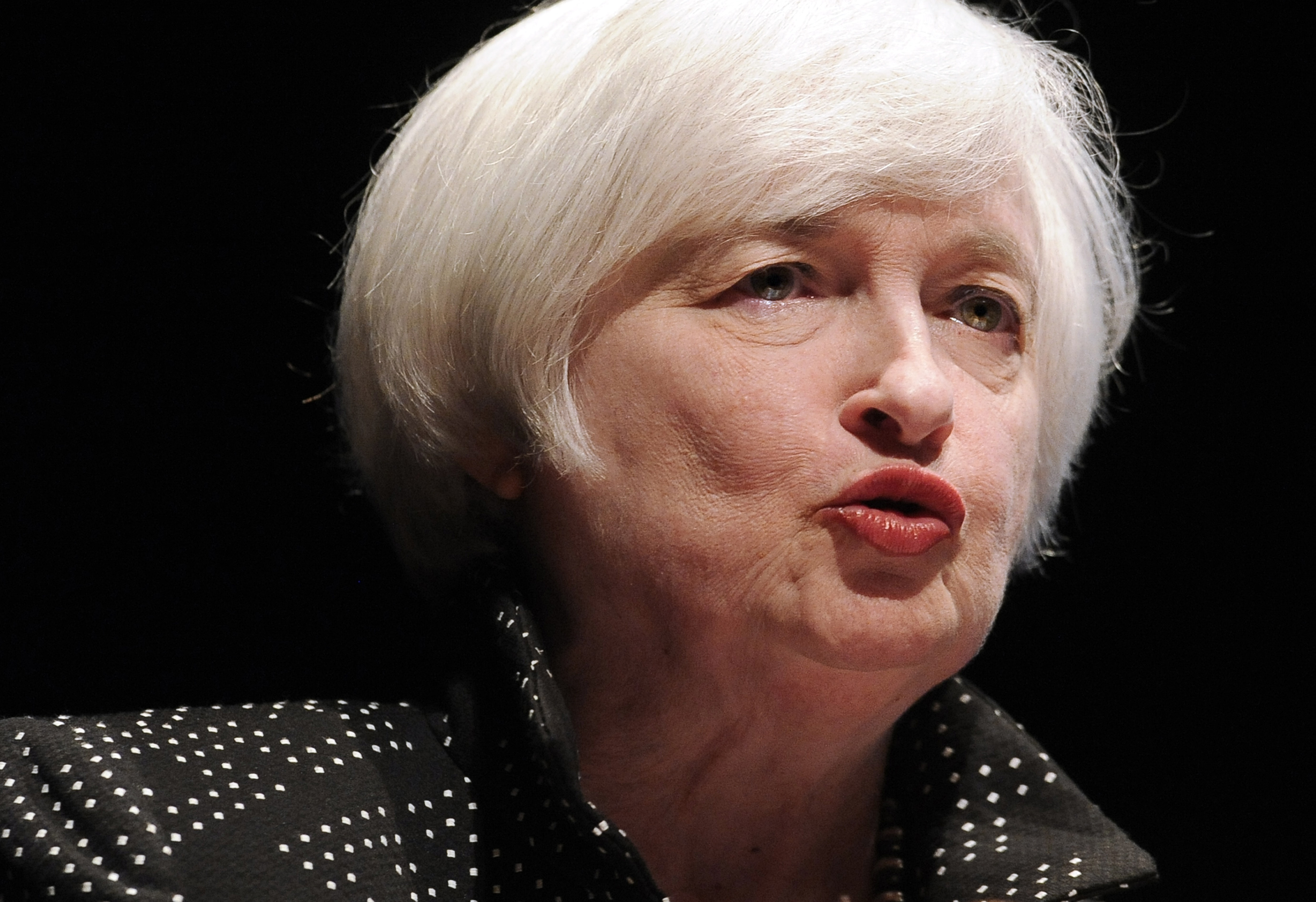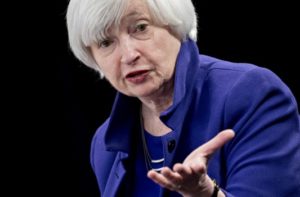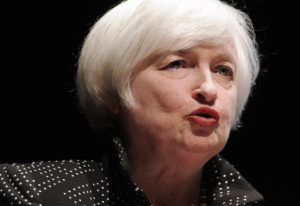
Federal Reserve Chair Janet Yellen.
Washington, 17 Jumadil Akhir 1438/16 March 2017 (MINA) – The US Federal Reserve on Wednesday raised interest rates by 0.25 percent to between 0.75 and one percent, and signaled further “gradual increases,” KUNA reported.
Also Read: Saudi Arabia Wins Bid to Host World Expo 2030
The labor market has “continued to strengthen,” and job gains remain “solid” with the unemployment rate “little changed” in recent months, the Federal Reserve said.
Meanwhile, economic activity continues to expand at a “moderate pace,” read a statement released after its Federal Open Market Committee (FOMC) meeting.
“Inflation has increased in recent quarters,” said the Fed, adding that, “excluding energy and food prices, inflation was little changed and continued to run somewhat below two percent.”
Nine out of 10 FOMC members voted in favour of the increase, including Federal Reserve chair Janet Yellen and vice chair William Dudley, while only one voted against.
Also Read: 148 Products from Indonesia Promoted at Sarawat Superstore Jeddah
Indonesia may benefit from Fed rate hikes
The Fed’s decision to increase its rate indicates that the US central bank is concerned about inflation in the world’s largest economy, a situation that Indonesia should not worry about, pressreader.com quoted Sucorinvest investment analyst Billy Budiman as saying.
Rising US inflation is caused by rising commodity prices, which can actually benefit Indonesia given its status as a commoditybased exporting country.
Also Read: Packaging Industry Supports Halal Ecosystem
“Thus, the price hikes could help lower the country’s current account deficit and indirectly support the rupiah against the greenback,” Billy said during a media discussion in Surabaya, East Java, on Tuesday.
A stable rupiah will help improve many sectors in the country, such as the banking industry, which has suffered from soaring bad loans as a result of depressed commodity prices. People’s purchasing power, especially those living in commodity-producer regions such as Kalimantan and Sumatra, will also improve in line with price increases.
“The key is a stable rupiah,” Sucorinvest investment director Jemmy Paul said. “If the rupiah weakens, [Bank Indonesia’s] benchmark interest rate will have nowhere to go but upward.” (T/RS5/RS1)
Mi’raj Islamic News Agency (MINA)
Also Read: Indonesia-Japan Agree on Energy Transition Cooperation

























 Mina Indonesia
Mina Indonesia Mina Arabic
Mina Arabic